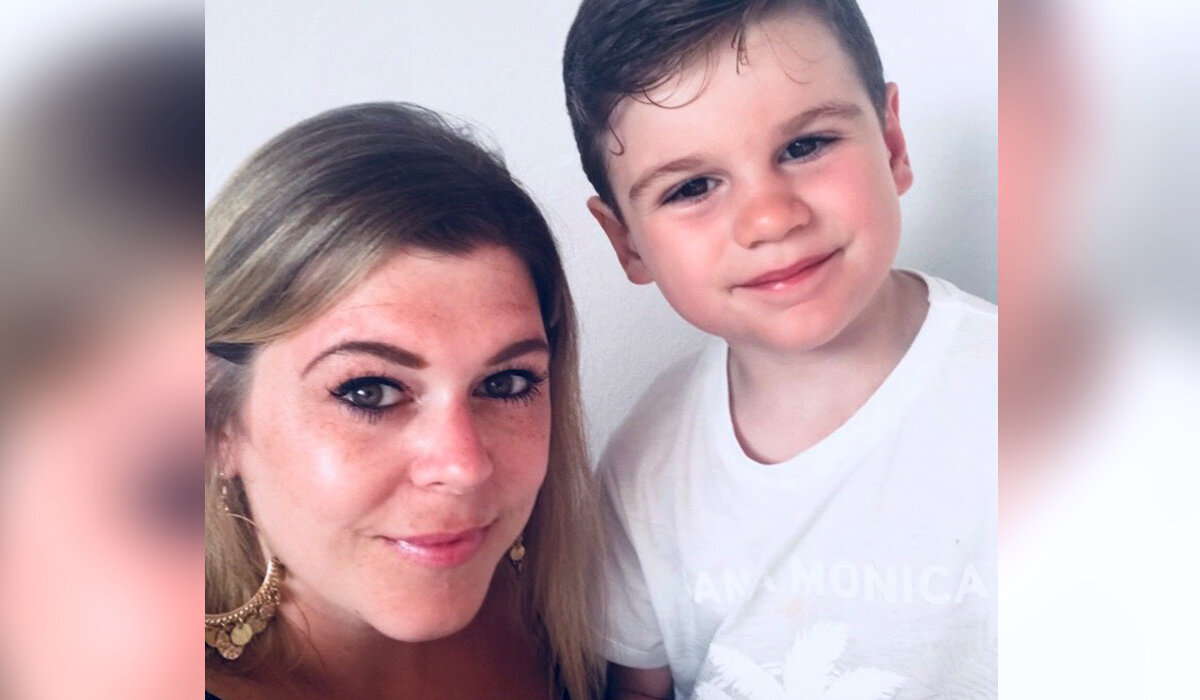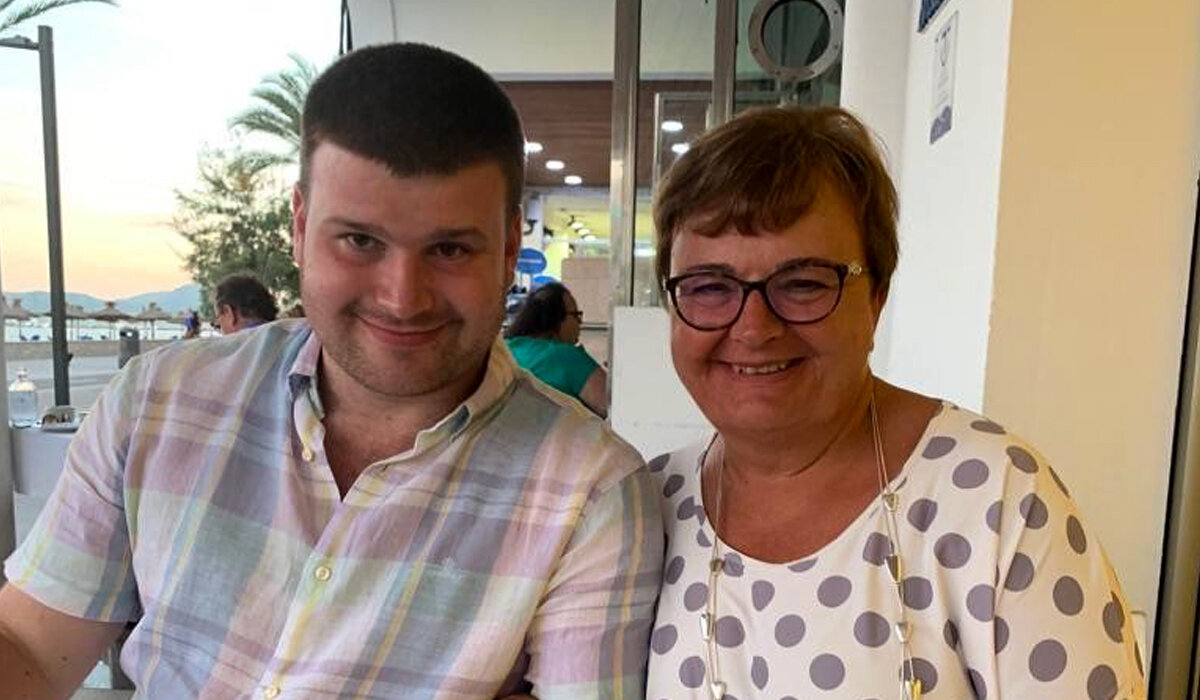
"It's important for us to have help from disability social workers, as our family is increasingly isolated."
Danielle
- on accessing support for her autistic son
Stories from the Spectrum: Danielle and Freddie
In this Stories from the Spectrum interview, we spoke to Danielle.
Every day, disabled children are missing out. There is a £434 million funding gap between what support is needed and what support is provided, and families like Danielle and Freddie are reaching a crisis point.
As a member of the Disabled Children’s Partnership, today we are joining the launch of #GiveItBack, a new campaign asking the Chancellor to provide the much-needed funding for disabled children and their families. You can sign the open letter here.
To mark the launch we spoke to Danielle, 31, from Hampshire, mum to Freddie. She describes “everything as a constant battle.” She tells us about the reality of raising an autistic child with complex needs and a lack of government support, and what you can do to help create a world that works for autistic people and their families.
What was the process of getting an autism diagnosis for Freddie like?
I didn’t have a connection to autism and I knew very little about it, apart from autistic characters on television. Before his first birthday, Freddie would make eye contact, wave, smile and respond to his name being called. After his first birthday, all of this stopped and Freddie started to make a continuous humming noise and didn’t show an interest in other children, adults or age appropriate toys. When I asked if Freddie might be autistic, a health visitor dismissed me at his two year check-up. She insisted that he was being a “typical” lazy boy. But I knew something was different about Freddie. It was a long wait until we finally got an autism assessment and as we didn’t have any answers, we didn’t know how to help Freddie. This is when I started to realise that getting support is difficult, and I now know that we were one of the lucky families to be seen so quickly, as many families fight for years just to get an autism assessment.
How did you feel when you got the diagnosis?
When you have a child most people have certain hopes and expectations for their child’s future. You hope that they will live a happy, healthy life, do well at school, make friends easily, maybe marry someday and have children of their own.
When I was told Freddie would need lifelong care and would most likely never be independent, I felt sad for everything he’d miss out on growing up.
I never wanted to see him struggle and watching him have bad days and not always being able to help him is heart breaking. Eventually, I stopped feeling this way all of the time and started to understand Freddie’s needs. We’ve accepted his diagnosis and we’ve prepared for the future and will always be there to support him.
What support did you receive?
During Freddie’s diagnosis I was told that Freddie has complex needs and may never speak. I didn’t fully understand what an autistic person with complex needs could be like at the time and couldn’t accept the fact that Freddie would never learn how to speak. I left with the diagnosis feeling relieved as I thought that now he was diagnosed as autistic, Freddie would get all of the help and support he needed. The support never came.
Everything seemed like an endless battle. After his diagnosis I was given a leaflet for the National Autistic Society and told that we would see a paediatrician every six months.
No other help or advice was offered to us and I felt very alone and isolated, as if we’d entered a secret world and nobody was willing to share the information we needed.
It’s extremely difficult to find any helpful information about autistic people with complex needs, it seems like everyone is too afraid to talk about it. I’ve always had to be the one chasing up paediatricians, speech therapists, children’s services, occupational therapy, making our home safe and waiting to see if Freddie has been accepted into a specialist school.
What do you think the barriers to support for Freddie are?
The main barrier is lack of awareness and acceptance for children and adults like Freddie, which means families like mine can feel negatively judged, like we don’t belong in our community, or can’t speak about our situation. Most of the public aren’t aware that some people on the autism spectrum will need lifelong care, constant supervision and help with all of their personal care needs. Many people don’t understand what non-verbal means, so don’t know how to communicate or meet the needs of an autistic child with complex needs and a learning disability because it’s not what is shown on television, or on the news.
As Freddie gets older and bigger, I think it’s really important for us to have help from disability social workers, as our family is increasingly isolated from the community.
"As Freddie gets older and bigger, I think it’s really important for us to have help from disability social workers, as our family is increasingly isolated from the community."

Freddie relies on me and my husband for everything, but we as parents, and Freddie as his own person, need more support accessing the community safely. It’s extremely difficult to find suitable places for Freddie to go and have fun. As parents, learning to trust others with Freddie is really difficult. During the school holidays is when we struggle most because we feel like we can’t leave the house. Freddie needs to be able to have access to play schemes, and activities that meet his complex and sensory needs. He deserves to be able to go out and have fun like other children, but that isn’t always possible to do when he can’t cope with certain situations. He needs an environment that meets his needs and people who understand him. Freddie is a sensory seeker and is very driven by his sensory needs, if these needs aren’t met it affects his behaviour. Lack of funding makes it really hard to receive any extra support during these times or receive funding for activities that are suitable.
What could the public do to create a society that works for autistic people?
Offering a smile instead of a frown when we’re having a difficult moment in public would be great. We aren’t asking for a lot, we just want to be able to leave the home without fear of being judged, whispered about or watched constantly. If the public were aware and accepting of people’s differences it would make leaving the house slightly less stressful. If a situation or certain behaviour looks unusual, please know that it’s our normal and we’re doing everything we can to make our child happy and safe.
I hope Freddie continues to be happy - that’s my main priority. He loves his specialist school and thrives with routine and boundaries. I hope he continues to receive the best educational support. If Freddie needs lifelong care, we want him to be surrounded by people who understand him, support him and make him smile.
We also know that to do this, the Government need to give back the £434 million of support that has been taken away through cuts and changes to the system. Millions of families like mine are on the edge.
You can show your support by signing this open letter written to the Chancellor and sharing your story on social media with the hashtag #GiveItBack.
Similar stories

"Society is much more open to talking about autism. I hope it can continue."
Angela
- on attitudes towards autism
Read more

The Spectrum magazine
Explore one of the UK's largest collections of autistic art, poetry, and prose. The Spectrum magazine is created by and for autistic people, and is available both online and in print.
Read the Spectrum





You are not alone
Join the community
Our online community is a place for autistic people and their families to meet like-minded people and share their experiences.
Join today